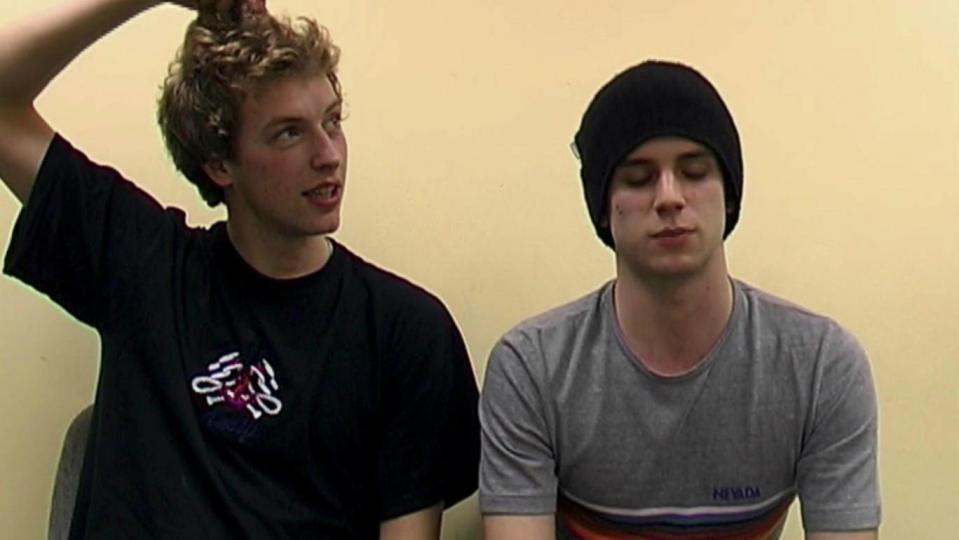A Head Full of Dreams confirms Coldplay aren't cool, but shows how they never tried to be
The uncoolness of Coldplay has never seemed to bother the band. Infuriating their detractors even more, they’ve only amplified the aspects that people mock. More technicolour confetti. More singalong choruses dripping with vowels (”woah” being their vocal hook of choice). More lauding of love in earnest.
“I think some people just say ‘Oh f*ck off, this is hippie nonsense’, but that’s OK,” frontman Chris Martin says in a new documentary about the band, Coldplay: A Head Full Of Dreams.
Coldplay aren’t exactly the archetypal hippies. Rather, it’s their clean-cut hippie image and ethos that seem to get under people’s skin. It’s the revolution anthems being crafted with clinical, radio-friendly precision by five guys who look most comfortable in fleeces and bootcut jeans.

The band’s egalitarian flower child image has only formed over the last couple of albums and stadium tours, but their middle class, short-back-and-sides awkwardness was there from the beginning. These glimpses of their formation at UCL are the most interesting aspects of the documentary, which was pieced together from years of handheld camera footage by friend and filmmaker Mat Whitecross.
In the days before they even had a name (days they had the foresight to film), Chris, Jonny, Guy, Will and Phil were the quintessential British uni students. We see them jumping up and down in a marquee to Fat Les’s “Vindaloo”, having thumb wars on National Rail trains and getting stoned in their halls of residence rooms. Chris Martin still wore braces, and played in a blues band called The Rockin’ Honkies.
They were nerds, plain and simple – still pubescent-looking boys who “girls wouldn’t even sit next to at a bus stop” (Martin’s words not mine). And they knew it. Much of the early band footage sees Martin parodying early band footage itself. Clearly the joker and extrovert of the band, he pokes fun at their less than rock and roll situation as they worked to get signed while holding down bachelor degrees. He does so partly out of self-consciousness, and partly because he was certain that there would indeed one day be a documentary made about the band.

Many, if not most, music docs dispel the myth of the cool kid becoming the rock star, but none so thoroughly as this one. Their ascent – from grimy Camden gig venues where the support band cleared off with their bass drum, to a headliner slot at Glastonbury – was a swift one, and the man-child vibe of the band comes into focus. The kind of kids who would be in the smoking area not on the dance floor (if at the club at all), you can see why they looked somewhat awkward during that “neon admiral” costume phase, or why Martin looks like he should be shouting “mum, watch this!” before he does one of his trademark leaps on stage.
The backlash the band suffered is approached head-on once in the documentary, getting their reaction as The New York Times publishes a piece entitled “The case against Coldplay”, around the same time that a music critic famously describes Coldplay as “music to wet your bed to”.

“It’s OK, I get it,” Martin says. “I think it’s important to have figures of ridicule, I don’t mind being one of them.” He also claims to have “spent quite a lot of years being anxious about people that didn’t like us, without focusing enough on the people that do”. If he did, it’s not clear here, as the band seem entirely focused in the studio on what music sounds good to them and the legions who still love them. It’s not so much “f*ck the haters” as “embrace our fans”.
The creative force around which the band orbits, Martin is a perfectionist. “I think everything we’ve done is sh*t,” he very self-deprecatingly says at one point, “that’s why I keep trying to do new stuff”. The documentary wears its heart on its sleeve, and though it will do nothing to convince their critics and former fans of the quality of their more recent musical output, it might make them approach the band with a little more generosity.

 Yahoo News
Yahoo News 
